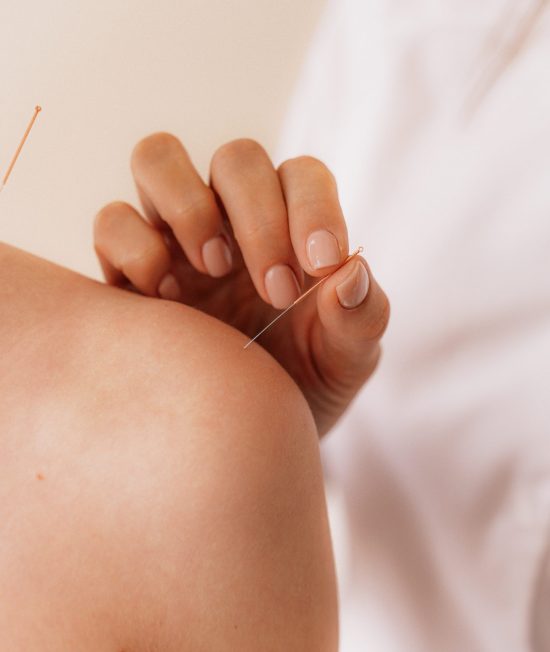Western Medical Acupuncture
Western medical acupuncture is a complementary therapy involving the insertion of fine, sterile, disposable needles to the depth of a few millimeters into strategic points of the skin, those points are the acupuncture points, which are connected to another set of lines better known as meridians.
The meridians run under the surface of the skin and deeply inside the body, forming a network similar to the nervous system or the blood circulatory system. The meridians act as communication networks, whereby regulatory impulses may be transmitted to all parts of the body. The impulses traveling along the meridians can go to the internal organs can regulate the quantity of bile, urine or digested juices secreted: the movement of the intestines or lungs: the detoxifying activities of the liver: or the strength of the heart beat.
Research has shown, (Professor Wogralik, and Kim Bong Han), that acupuncture works via a cellular network, where specialised clusters cells at the points are connected to one another and the internal organs via bundles of hollow cells.
The mind is another important part in acupuncture as it affects the body, and the body affects the mind.
There are several types of acupuncture, perhaps the most widely known is Chinese acupuncture. Other equally important with a few millenia of history are, Japanese acupuncture, Korean acupuncture, Vietnamese acupuncture, Indian acupuncture, Western acupuncture, and presently a substantial research papers are being published from Brazil.
The wisdom and philosophy of ancient Chinese says that Qi, or the energy of life, flows along the meridians. Is the uninterrupted flow of Qi or Chi that keeps living beings alive, and disease will result if this flow in certain parts of the body is interrupted. The needle aims to re-establishing the flow.
The scope of acupuncture
- For the head - Neuralgia, trigeminal neuralgia, headaches, migraine ticks, or spasms, inner ear vertigo.
- Limbs and muscles - Fibrositis, sciatica, lumbago, cramps, writers' cramp, frozen shoulders, tennis elbow, RSI or tenosynovitis, strained neck, hip pain, knee pain.
- Digestive system - IBS, cramps, bad breath (usually combined with diet), nausea and vomiting.
- Menstrual and menopausal symptoms.
- Nervous system - Depression, anxiety, fatigue, travel sickness, facial palsy.
- Respiratory - Asthma, chronic bronchitis, acute and chronic rhinitis and sinusitis.
- Nervous system and mental/emotional problems - Anxiety, depression, outbursts of temper, neuralgia after shingles.

Duration of treatment The average person with chronic conditions may require seven to ten treatments, mild diseases need fewer treatments, sometimes two or three, and severe ones like a bulging disc may need about six to start, then re-assess.
About half of patients responding well to acupuncture notice a positive response from the first session, some very sensitive patients notice a response within a few seconds of the first needles being put in the selected point. Other notice a change several hours , several days after receiving acupuncture.
Response to treatment can be felt as increased energy and awareness, or a feeling of deep relaxation, ease of symptomatic pain.
A few may have a reaction after treatment and might feel temporary worse before they get better, this happens more often after the first treatment. The reaction may be due to the over stimulation and the release of chemicals in the blood.
Acupuncture can help many conditions, but the person must be committed to make changes in life style, diet, exercise, and stress factors.
Get in touch
Feel free to contact us if you have any questions or to arrange an initial appointment. You can also call or text on 07966453796 or 02086843888 .
We are happy to discuss any queries or questions you may have prior to arranging an initial appointment.
All enquires are usually answered within 24 hours, and all contact is strictly confidential and uses secure phone and email services.
Find out more by reading my Data Protection Regulation.